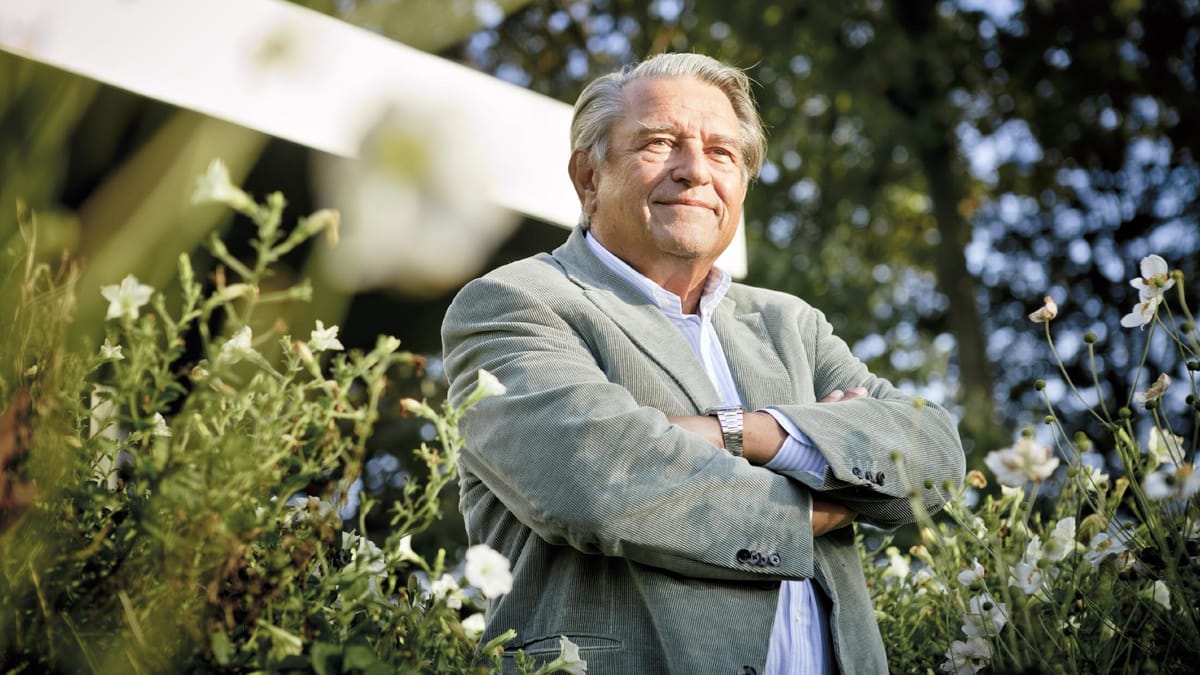News
Guy Ullens, 1935–2025

On April 19, Belgian philanthropist and business mogul Guy Ullens—pioneering collector of contemporary Chinese art and co-founder of the Ullens Center for Contemporary Art (UCCA) in Beijing—died of natural causes at the age of 90. Known for drawing international attention to contemporary Chinese artists such as Liu Xiaodong, Huang Yong Ping, Gu Wenda, and Fang Lijun, Ullens helped to make China’s provocative new art accessible to Western viewers, critics, and buyers during the ebullient period at the turn of the millennium.
Baron Guy François Édouard Marie Ullens de Schooten Whettnall was born in 1935 in San Francisco, where his father was serving as a diplomat. Shortly thereafter, the family went on to live in Norway, Germany, India, Pakistan, and Iran. After earning a law degree from Belgium’s Catholic University of Louvain in 1958 and an MBA from Stanford University in 1960, Ullens began his career in the family food business. By the late '90s, he had gradually moved away from day-to-day business dealings to pursue his philanthropic and cultural interests.
In 2002, Ullens and his wife—Belgian entrepreneur Myriam Lichien—launched the nonprofit Guy and Myriam Ullens Foundation, supporting international exhibitions and museum loans of Chinese art. Five years later they established the Ullens Center, anchoring Beijing’s 798 Art District. While they eventually amassed more than 1,500 contemporary Chinese works, the pair did not use the Center merely to showcase their own collection. Instead, they relied on the programming expertise of UCCA directors such as Fei Dawei, Jérôme Sans, and Philip Tinari. As a result, noteworthy exhibitions have included “85 New Wave: The Birth of Chinese Contemporary Art” (2007), “On | Off: China’s Young Artists in Concept and Practice” (2013), and “Rauschenberg in China” (2016).
Despite fluctuations in the Chinese contemporary art market during the early 2000s—from the heyday of globalism to the world financial crisis of 2008 and the subsequent rise of nationalism—Ullens, who began collecting Chinese antiquities in the 1970s and contemporary experimental work in the late 1980s, did well financially for himself and his favored artists. In 2011, Sotheby’s Hong Kong proffered more than 100 works from the Ullens Collection, including Zhang Xiaogang’s triptych Forever Lasting Love (1988), which alone brought in USD 10.1 million. In October 2013, also at Sotheby’s Hong Kong, Zeng Fanzhi’s painting The Last Supper (2001) fetched USD 23.3 million, then a record for a contemporary artwork from Asia.
In 2017, the couple sold the Ullens Center, which was rechristened the UCCA Center for Contemporary Art under a foundation set up by the retail firm UCCA Enterprises. Thereafter the Ullens’ focused on various charity endeavors initiated years earlier by Myriam, a cancer survivor. These include orphanages and schools in Nepal and cancer facilities in eight European hospitals.
In 2023 a gunman assaulted the spouses as they sat in a car outside their home in Belgium, tragically killing Myriam and wounding Guy in a leg. The next day, Nicolas Ullens, one of Guy’s sons from his first marriage, turned himself in to the police. A dispute over inheritance is suspected in the case. Guy soon filed a civil suit against his son, who is currently free on bond pending a trial slated for 2026.
In an era increasingly dominated by speculative art buying, Guy Ullens was a true patron of the arts. He will be remembered as a collector impassioned by the transcultural artworks he acquired and by the social benefit their public display could bestow.
Richard Vine is the acting managing editor at ArtAsiaPacific.







